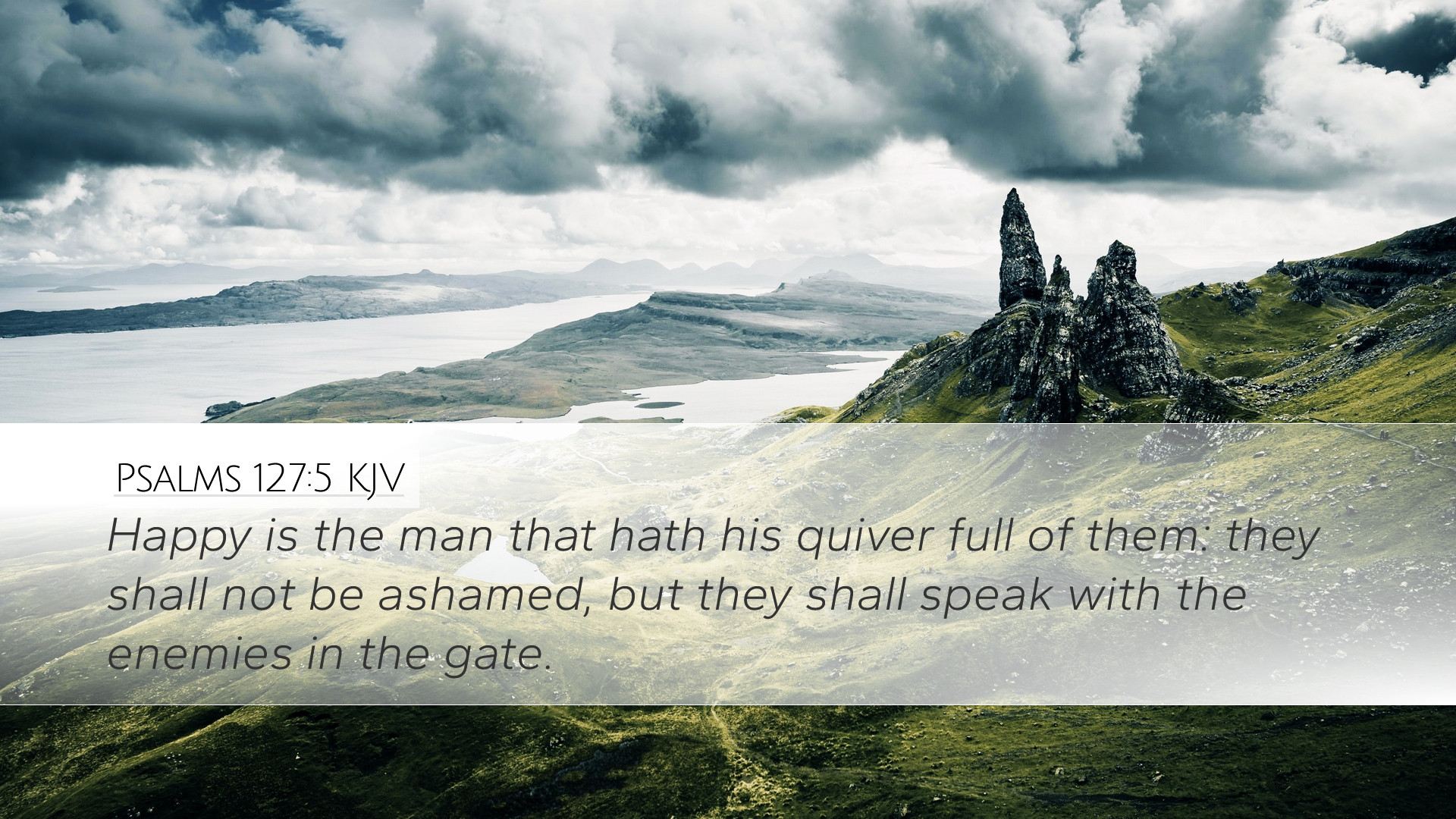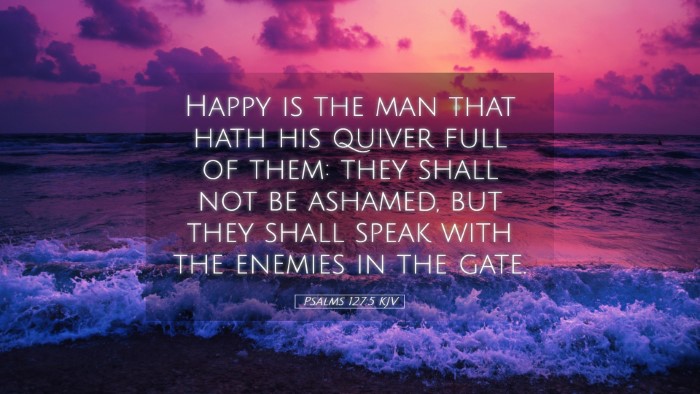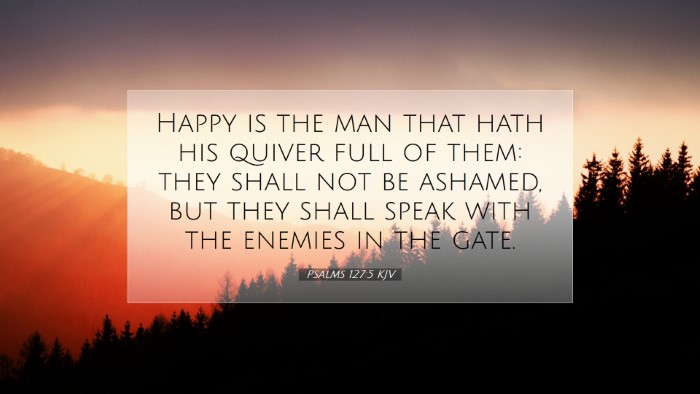Psalms 127:5 Commentary
Bible Verse: "Happy is the man that hath his quiver full of them: they shall not be ashamed, but they shall speak with the enemies in the gate."
Introduction
The verse Psalms 127:5 carries profound meaning and significance in the context of family, heritage, and divine blessing. It encapsulates the joy and fulfillment derived from the blessings of children, particularly in the context of their role within the broader community of faith and society. The commentaries of Matthew Henry, Adam Clarke, and Albert Barnes provide rich insights suitable for pastors, students, theologians, and Bible scholars.
Understanding the Quiver
The Quiver as a Metaphor: The metaphor of a 'quiver' symbolizes readiness and preparedness. Just as an archer equips himself with arrows, parents equipped with children are seen as having resources to face the challenges of life. According to Matthew Henry, children are compared to arrows—an image that illustrates their potential and impact in the hands of a skilled parent.
The Joy of Parenthood
Happy is the Man: The idea of happiness in this context is linked to the fulfillment of God's plan through the blessing of offspring. Albert Barnes notes that true happiness is not simply a fleeting emotion but a deep-rooted contentment that arises from being blessed with children. These blessings are seen as a divine reward for the righteous.
Children as a Reward: The phrase 'having his quiver full' suggests abundance. Adam Clarke explains that this fullness not only points to the number of children but also underscores their potential to contribute to society and carry on the legacy of faith. It implies that children should be viewed as assets rather than burdens.
Children and Spiritual Warfare
They Shall Not Be Ashamed: This phrase speaks to the dignity and honor that comes from raising children who grow up with integrity and wisdom. Matthew Henry comments that children raised in the ways of righteousness will stand firm against adversities and challenges, embodying the principles taught by their parents.
Speaking with the Enemies in the Gate: The reference to 'speaking with the enemies in the gate' denotes a position of authority and engagement with societal issues. According to Barnes, the gate was a place of decision and judgment in ancient Israel. Here, children and their wisdom become crucial to the community. They represent not just familial lineage but also the strength and stability of a society grounded in God’s principles.
The Role of Parents
Parental Responsibility: The text implies not just a blessing but also a responsibility on the part of parents to raise their children in godliness. Adam Clarke emphasizes the need for parental nurturing, teaching children the values and tenets of faith which equip them for effective engagement within the world.
Instilling Values: The verse underscores the importance of imparting wisdom and character into the lives of children. Ensuring they are 'not ashamed' means that parents have a role in leading them to become ambassadors of faith and righteousness.
Communal Implications
Building a Godly Society: Beyond individual families, the blessings of children contribute to the broader community. Henry asserts that as children grow and enter the gates of society, they become engaged figures who uphold the values of God's kingdom.
Each child raised under sound doctrine is like an arrow poised to be launched into the world for God's glory.
A Legacy of Faith: The blessings of a full quiver signify continuity and legacy. Barnes remarks that a family oriented to God is a generational blessing that cultivates a community rooted in righteousness and hope.
Conclusion
Psalms 127:5 serves as a powerful reminder of the blessings of children as foundational to happiness and fulfillment in the family. The compendium of insights from Matthew Henry, Adam Clarke, and Albert Barnes emphasizes the multifaceted roles children play—not only as a joy to their parents but as pivotal figures in the formation and fortification of society. This verse invites us to view parenthood as both a privilege and a profound responsibility, urging us to raise children who are prepared to face the complexities of life with wisdom, grace, and strength.


